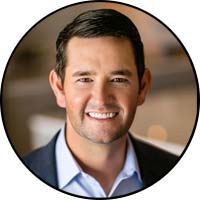Types of Mortgage Loans: Which is Best for You?
Published on FEBRUARY 4, 2023 by ROB HASTINGS
CATEGORIES: Mortgages and Financing
While the process of buying a home can be very exciting, the not-so-fun part is determining how you are going to pay for it.
According to the National Association of Realtors (NAR), 78% of buyers in 2022 got a mortgage for their home purchase. In other words, most buyers had to consider this same question: which type of mortgage is best for you?
Selecting the right type of mortgage loan is a critical decision in your homebuying journey as the implications can affect you financially for years to come. With so many options available, it can be difficult to determine which type of loan best fits your financial situation.
In this article, we'll take a comprehensive look at the different types of mortgage loans available in the United States and help you make an informed decision. However, your trusted loan officer at your selected mortgage company will be your best resource for helping you determine which loan type is best for you.
Fixed-Rate Mortgages
A fixed-rate mortgage is one of the most common types of mortgage loans.
This loan offers a stable monthly payment over the life of the loan because the interest rate remains the same (fixed). This makes it easier to budget and plan for the future. Fixed-rate mortgages are available in terms ranging from 10 to 30 years, so you can choose the term that works best for your financial situation.
One of the biggest benefits of a fixed-rate mortgage is the predictability it provides. With a fixed rate, you know exactly how much your monthly payment will be (in terms of total principal and interest) for the entire loan term. This can help you plan your budget and make sure you have enough money saved to cover the cost of the loan. Additionally, if interest rates rise in the future, your monthly payment will not change, making it easier to manage your budget.
With a conventional loan, which is a type of fixed-rate mortgage, a downpayment is required. A downpayment of 20 percent of the purchase price is standard for a conventional loan, but some conventional loans are offered with downpayments as low as 3 percent.
A downpayment of at least 20 percent allows the borrower to avoid paying Private Mortgage Insurance (PMI). PMI protects the mortgage lender in the event you cease to make payments on your loan. PMI can be removed from your mortgage payment when the equity in your home reaches 20 percent.
Adjustable-Rate Mortgages (ARMs)
An adjustable-rate mortgage (ARM) is a type of loan in which the interest rate changes over time. The interest rate on an adjustable-rate mortgage is based on an index that is adjusted periodically.
The biggest advantage of an ARM is the lower initial interest rate, which can result in a lower monthly payment. This can be especially helpful for home buyers who are looking to purchase a home that is priced above their budget. Also, if interest rates rise in the future, you may be able to refinance your loan to a lower interest rate.
One of the potential disadvantages of an ARM is the uncertainty of future payments. If interest rates rise significantly, your monthly payment may increase, which can make it difficult to manage your budget and unable to make your mortgage payment, leading to foreclosure.

Prior to the last housing crash in 2008, 35% of all mortgages were adjustable-rate. When interest rates increased, these homeowners were unable to make their payments and were foreclosed on. While still risky, lending standards have since tightened in hopes to avoid this scenario in the future.
Additionally, if you plan to sell your home before the end of the loan term on an adjustable rate mortgage, you may not receive the full benefit of the lower interest rate.
FHA Loans
The Federal Housing Administration (FHA) offers a type of mortgage loan that is designed to help lower-income and first-time home buyers enter the housing market. FHA loans are government-insured, which means that the government will cover a portion of the loan if the borrower defaults.
One of the biggest advantages of an FHA loan is the low downpayment requirement. With an FHA loan, you can purchase a home with a downpayment as low as 3.5 percent. Additionally, FHA loans are more lenient when it comes to credit score requirements, making it easier for lower-income and first-time home buyers to get approved for a loan for home ownership.
A potential disadvantage of an FHA loan is the mortgage insurance premium (MIP). Unlike PMI for a conventional loan which may be removed after the buyer achieves 20 percent equity in the home, MIP is a fee that must be paid for the life of the loan (assuming the downpayment was the standard 3.5 percent for an FHA Loan). If you use an FHA Loan and put down 10 percent or more, MIP can be removed after 11 years.
Another disadvantage is that interest rates on FHA loans are generally higher than those of traditional mortgage loans.
VA Loans
The Department of Veterans Affairs (VA) offers a type of mortgage loan that is available to eligible active military members and veterans. VA loans are government-backed and offer several benefits, including low or no down payment requirements and competitive interest rates.
One of the biggest advantages of a VA loan is the no downpayment requirement. With a VA loan, you can purchase a home with no money down, which can be especially helpful if you have limited savings. Additionally, VA loans are more lenient when it comes to credit score requirements, making it easier for military members and veterans to get approved for a loan.
Another advantage of a VA loan is the lack of mortgage insurance requirement. Unlike conventional loans and FHA loans, VA loans do not require mortgage insurance, which can save you money each month.
One of the potential disadvantages of a VA loan is the VA funding fee. The funding fee is a one-time fee that must be paid when you take out the loan. This fee helps to cover the cost of the VA loan program and can be financed into the loan amount.
USDA Loans
A lesser-known financing option available for some buyers is the USDA loan. In short, this type of loan is designed to help low to moderate income households in rural and suburban areas purchase a home. This loan type is backed by the U.S. Department of Agriculture.
To be eligible for a USDA loan, the property must be located in an eligible rural area as designated by the USDA. Additionally, the buyer must also meet certain income requirements.
There are several benefits of USDA loans that make them an attractive financing option for homebuyers.
First, a down payment is not required, making a USDA Loan an excellent option for homebuyers who do not have a significant amount of cash saved. Second, USDA loans also typically have flexible credit requirements. As a result, it can easier for buyers with less than perfect credit to qualify for financing. Finally, USDA loans have no maximum purchase price.
Bottom Line
In conclusion, choosing the right type of mortgage loan can have a big impact on your monthly payment and financial future. You may find it helpful to use a mortgage calculator to help plan for this monthly payment while also protecting your financial future.
It's very important to review your mortgage financing options with your loan officer. And now that you have a better understanding of your options, the conversation with your loan officer will be both more productive and effective.
Related Articles:
5 Things You Probably Didn't Know About a VA Loan
ABOUT THE AUTHOR:

Rob Hastings is a top-producing real estate agent in Jacksonville, Florida and helps buyers, sellers, and investors of homes and property throughout all of Northeast Florida. He works with his wife Nancy as a husband-and wife-team with Keller Williams Realty Atlantic Partners. When not helping his clients navigate the real estate process, Rob enjoys working on old Corvettes and playing music (guitar and piano). A U.S. Naval Academy graduate and former Naval Officer, he also loves boating and simply spending time on the water.
